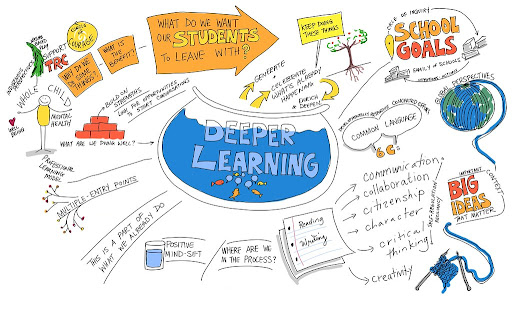Professional Learning Community (PLC) Update for the project English Learner Collaborations: Extending the Reach of Primary Sources
Guest post by Jacqueline LaFrance
January, 2023
Our English Learner Collaborations Project PLC consists of 13 middle school and high school Social Studies and EL teachers, coaches, and administrators, mostly from Massachusetts. The PLC is co-facilitated by two seasoned public school teachers: a high school Social Studies teacher with a background in teaching multilingual learners and an elementary EL teacher. Together our PLC meets monthly to discuss ways to deepen collaboration between colleagues who share our multilingual students and to share strategies for engaging our multilingual learners through inquiry of primary sources. In our (virtual) discussions we frequently return to the idea of how important it is to get to know our multilingual students through culturally responsive teaching in order to authenticate their study of Social Studies content.
Currently we are taking WIDA’s self-paced eWorkshop, Engaging Multilingual Learners through Inquiry, and trying activities around identifying and leveraging students’ linguistic, cultural, social/ emotional and experiential assets. We will be discussing our results of this work later this month. We have also taken a close look at data and how to use annual WIDA ACCESS -a standardized English Language assessment used in Massachusetts -scores to set language and content goals for students. Alison Noyes, manager of EL Collaborations Project, provided an introduction to the Library of Congress’ substantial collection of primary sources and how to access them. We have discussed Gholdy Muhammad’s theories of historically responsive literacy by referring to her work, Cultivating Genius. We identified aspects of urgent historically responsive teaching strategies in a sample Social Studies lesson designed for and with multilingual elementary students (read more about this lesson here). And we reflected about how to integrate HRL practices into our daily instruction. Next we will consider strategies to prepare for critical conversations that sometimes surface during SS lessons across the grade levels using Learning for Justice’s publication entitled, Let’s Talk: Facilitating Critical Conversations with Students.
The creative, skilled, committed and caring teachers who make up our PLC community energize one another through lively and respectful discussion during break out and whole group discussion. We share empathy and insight as we reflect together about the multiple identities of our multilingual students and how best to center them in our practice. As Margaret J. Wheatley wrote in her book, Turning to One Another, “There is no power greater than a community discovering what it cares about”.




